- Any candidate with a disability is entitled to have his/her needs addressed on an individual basis.
- Where appropriate to a candidate's needs and his/her normal way of working, multiple arrangements may be put in place.
- The JCQ also provides guidance for candidates with learning difficulties, communication needs and social and emotional needs as well as sensory and physical impairments.
Multi-sensory impairment
This activity looks at how the arrangements are applied to candidates with multi-sensory impairment.
Any candidate with a disability is entitled to have their needs addressed on an individual basis.
Multiple arrangements
Where appropriate to a candidate's needs and their normal way of working, multiple arrangements may be put in place. This can be particularly relevant to a candidate who has multi-sensory impairments or a sensory impairment combined with other difficulties.
Each arrangement needs to considered and requested in the same way as if it were being requested in isolation.
The evidence for a candidate should be compiled into a single file with a single letter outlining the range of arrangements being requested.
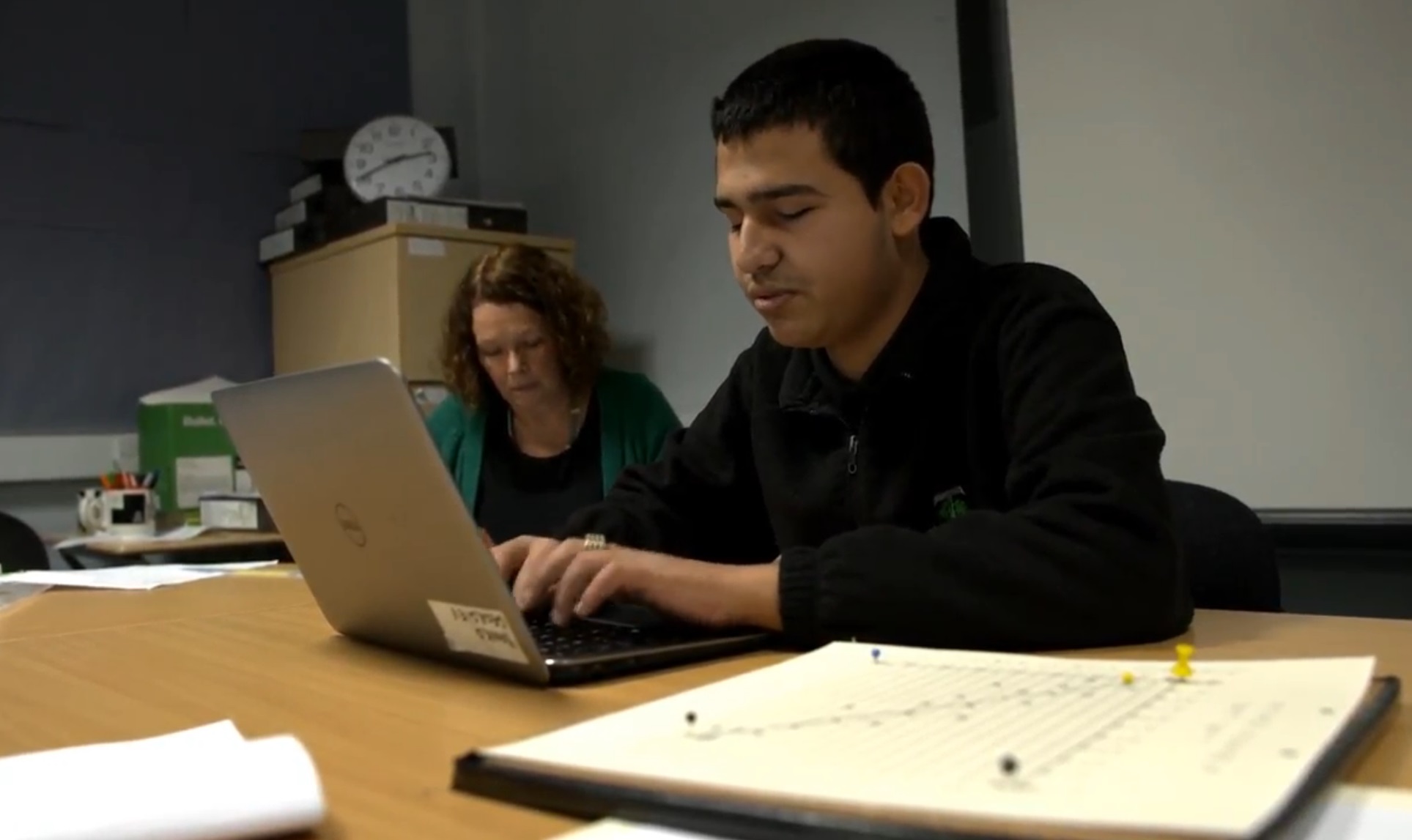
Other needs
The JCQ also provides guidance for candidates with learning difficulties, communication needs and, social and emotional needs as well as sensory and physical impairments.
JCQ guidance
Refer to the
Rationale
Some candidates may find the amount of reading, writing and processing involved in a timed examination very tiring. In some cases it may be appropriate to allow them supervised rest breaks, which may or may not include sensory break specific activities - see below.
Description
Timing
The timing of the examination should be paused and re-started when the candidate is ready to continue.
Any time taken for a rest break should be added to the end of the exam, so that candidates are not disadvantaged.
Supervision
The candidate must continue to be supervised during the rest break.
During the rest break the candidate must not have access to the question paper/answer booklet.
Sensory break specific activities
The supervised rest breaks may also be required to provide a sensory break for the candidate. Where the candidate has a regular sensory diet devised by an Occupational Therapist which includes exercises or activities to "stimulate or calm" these should be permitted, with the necessary equipment e.g. Physio Ball, during the rest breaks.
Constraints
There is no maximum time set for supervised rest breaks.
Evidence
Identify the candidate's established difficulties.
Confirm that supervised rest breaks reflect his/her normal way of working within the centre.
Considerations
A rest break is not the same as extra time because the candidate cannot use this time to answer questions. In some cases a combination of extra time (refer to separate arrangement) and rest breaks may be appropriate.
The decision must be made by the SENCo based on their knowledge of the candidate's needs and the candidate's normal way of working when placed under timed conditions.
The duration of the supervised rest break should be determined by the SENCo before the start of the examination series.
Process
This arrangement is delegated to the centre, there is no need to make an application for external approval.
JCQ guidance
Refer to the
Rationale
Many candidates with a sensory impairment will need extra time to complete an examination. This is because sensory impairments commonly affects an individual's speed of information processing and linguistic access, which may be unrelated to their cognitive ability. For example, it may take a candidate longer to read the text or to have it read to them.
Description
The candidate is given 25% extra time.
Constraints
There may be some tests or examinations where extra time is not allowed because completing a task in a set time is one of the skills being assessed.
Evidence
The SENCo must paint a picture of the candidate's normal way of working, clearly demonstrating the need for extra time.
An assessment of needs based on:
- Statement or EHC Plan
- Evidence from an external specialist (eg QTVI)
- Please note that providing evidence of a standardised reading score via JCQ Form 8 is not required for candidates with vision impairment.
- Advice from a specialist qualified teacher of multi-sensory impairment.
Considerations
Before requesting extra time, the use of supervised rest breaks should be considered first.
If the candidate needs extra time due to the use of a reader or scribe you should also refer to those sections in addition.
The arrangement must not only be granted to the candidate at the time of his/her examinations — there must be evidence that it is their normal way of working in examinations.
Process
An application must be submitted using AAO.
It may be automatically approved.
JCQ guidance
Refer to the
Rationale
Many candidates with multi-sensory impairments will need extra time to complete an examination. This is because sensory impairments commonly affects an individual's speed of information processing, which may be unrelated to their cognitive ability. For example, it may take a candidate longer to read the text or to have it read to them.
A visually impaired candidate may need more time to locate specific information in a modified paper in large print or braille. Extra time may also be required if a candidate writes slowly or dictates his or her answers to a scribe.
Hearing impairment may have had an impact on the candidate's memory, which again would necessitate extra time. Extra time may also be required if a candidate is making use of other access arrangements such as a Live Speaker in MFL, a Communciation Professional or an LM.
Up to 100% may be allowed for examinations involving large amounts of text or complex diagrams if sufficient evidence of need is presented.
Description
The candidate is given extra time.
The amount of extra time requested should be based on evidence of the candidate's normal way of working using the access arrangements e.g. in mock examinations and regular assessments. Extra time typically varies from around 25-50% of the time allowed for the standard paper; more might be allowed if sufficient evidence of need is presented.
For example, for a candidate proficient in reading braille and using a braille paper it would normally be appropriate to award no more than 50% extra time, possibly in conjunction with other access arrangements.
Constraints
There may be some tests or examinations where extra time is not allowed because completing a task in a set time is one of the skills being assessed.
Evidence
Confirmation of the candidate's disability.
Evidence of how the amount of extra time required has been determined.
Show the involvement of teaching staff in determining the need for extra time.
Confirm that without the application of extra time the candidate would be at a substantial disadvantage.
For a candidate with vision impairment it is not necessary to provide evidence of their reading speed and comprehension via JCQ Form 8 when applying for extra time.
Considerations
There needs to be strong justification for why more than the 25% extra time adjustment is needed.
Although extra time between 26% and 50%, and over 50% are considered 'exceptional arrangements' they are typical for candidates with significant vision impairment.
Process
An application must be submitted using AAO.
It will be automatically rejected.
The centre should then refer the application to the relevant awarding body.
JCQ guidance
Extra time up to 50%
Refer to the
Extra time over 50%
Refer to the
Rationale
The candidate uses equipment in their normal day-to-day studies and without it would be at a substantial disadvantage when compared with other non-disabled candidates undertaking the assessment.
Description
The candidate is allowed to use technology if it is their normal way of working.
In principle, any technology is permissible in an examination. This includes:
- optical or electronic magnifiers
- e-book readers
- desktop, laptop and tablet computers
- braille notetakers
- word processors
- CCTV
- Coloured overlays (physical and virtual)
- Optical Character Reader (OCR) scanners
- audiological equipment and FM systems
- Bluetooth speakers
- any permissible apps on their tablet
- task lamp
- any specialist seating which the candidate uses in everyday education
Constraints
There are extensive rules concerning the use of any type of word processor, summarised as follows.
- There must be no student's work or any other subject content on the machine.
- Spell check, grammar check, automatic facilities such as AutoCorrect and predictive writing software must be rendered inoperative.
- There must be no network link to intranet or Internet.
Evidence
Confirmation that the candidate has a substantial and long term impairment (within the meaning of the Equality Act) which has an adverse effect.
Confirm that the arrangement is the candidate's normal way of working within the centre
Considerations
For computer readers refer to the section below.
Process
This arrangement is delegated to the centre, there is no need to make an application for external approval.
JCQ guidance
Word processors
Refer to the
Other technology
Refer to the
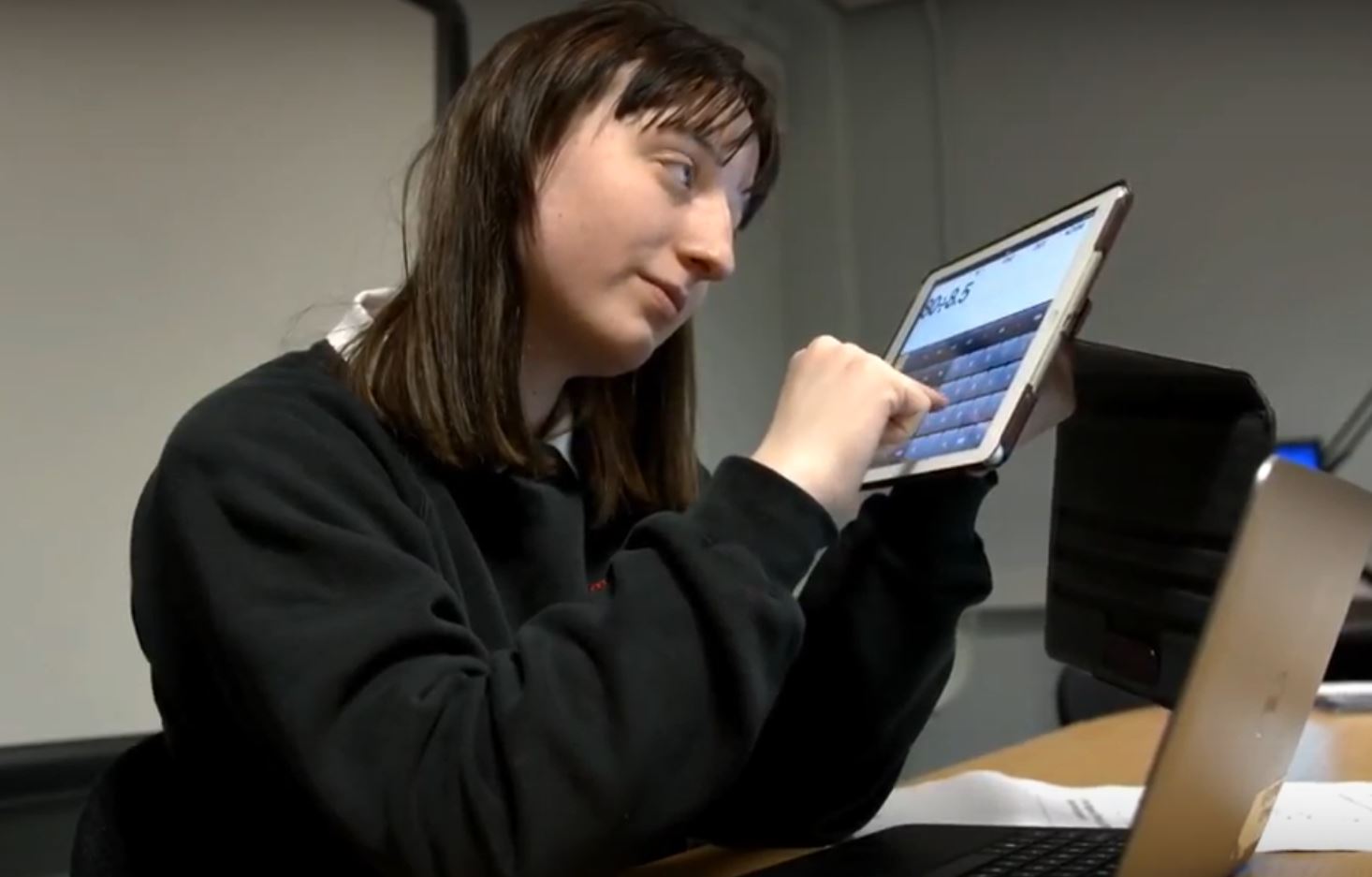
Rationale
Modified papers in accessible formats are an essential access arrangement for many candidates with a sensory impairment. The awarding bodies recognise and provide a range of 'standard' modified formats in the hope that these will meet the needs of most candidates.
Description
The candidate is given an alternate examination paper.
Modified language papers in which the language has been modified to ensure access to candidates with HI and/or language difficulties are produced by most Awarding Organisations as a matter of course. This certainly applies to the core subjects.
The 'standard' modified formats available for vision impairment are:
- Coloured/enlarged paper — centres should submit an application on AAO to open papers 90 minutes early and to copy them onto coloured or A3 paper as required. No changes may be made to the content or layout of the original paper.
- Modified enlarged paper — these papers are intended for candidates who cannot read a standard examination paper. The layout and presentation of the standard paper is modified to remove elements of visual complexity without changing the demands of the assessment.
Pictures and diagrams are often re-drawn to make them more visually accessible. In some cases pictures may also be replaced or supplemented with a written description. The standard formats for MEP papers are:- 18 point bold print on A4 paper
- 24 point bold print on A4 paper (new in 2018)
- 24 point bold print on A3 paper
- 36 point bold print on A3 paper (this option may not be available in all subjects).
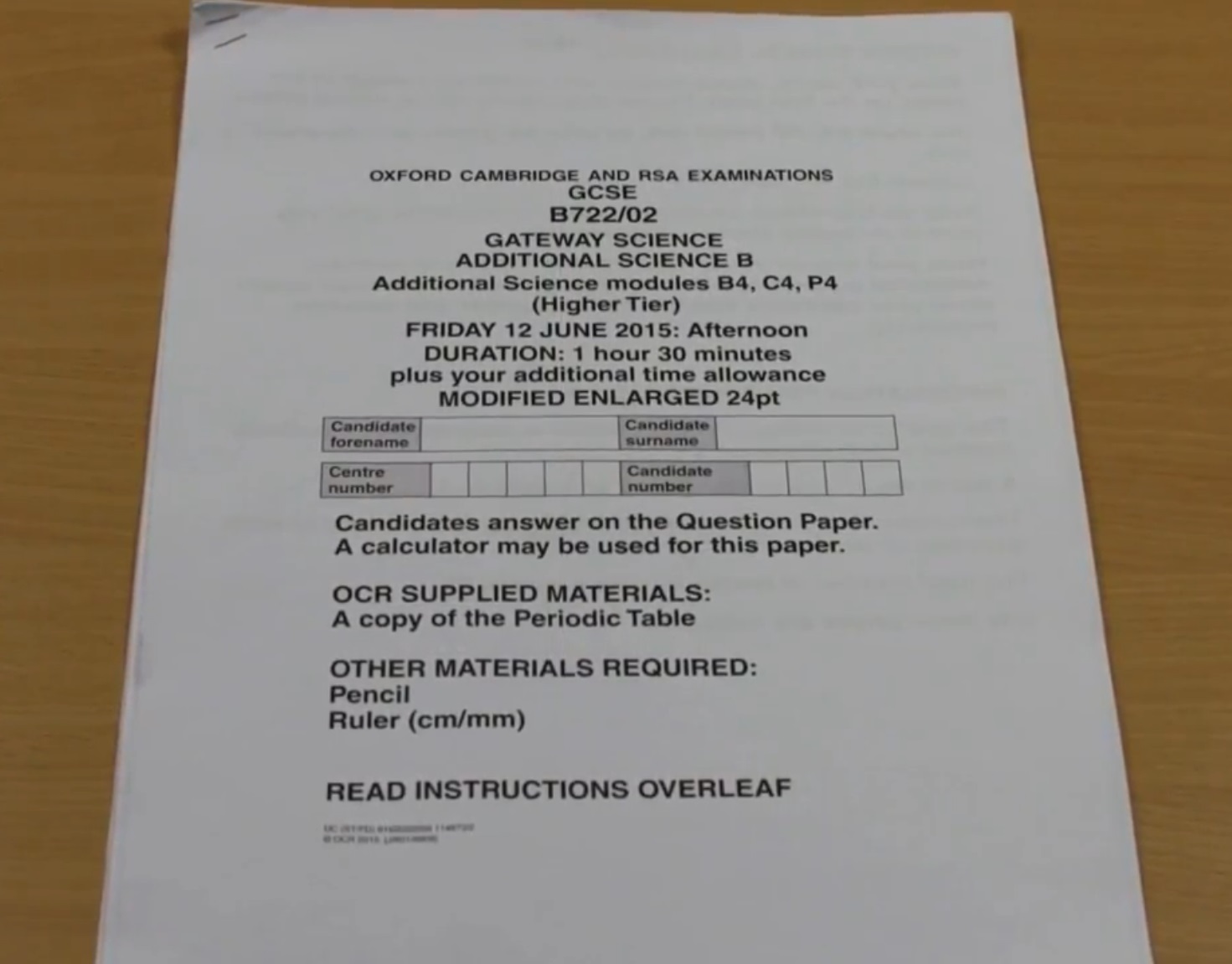
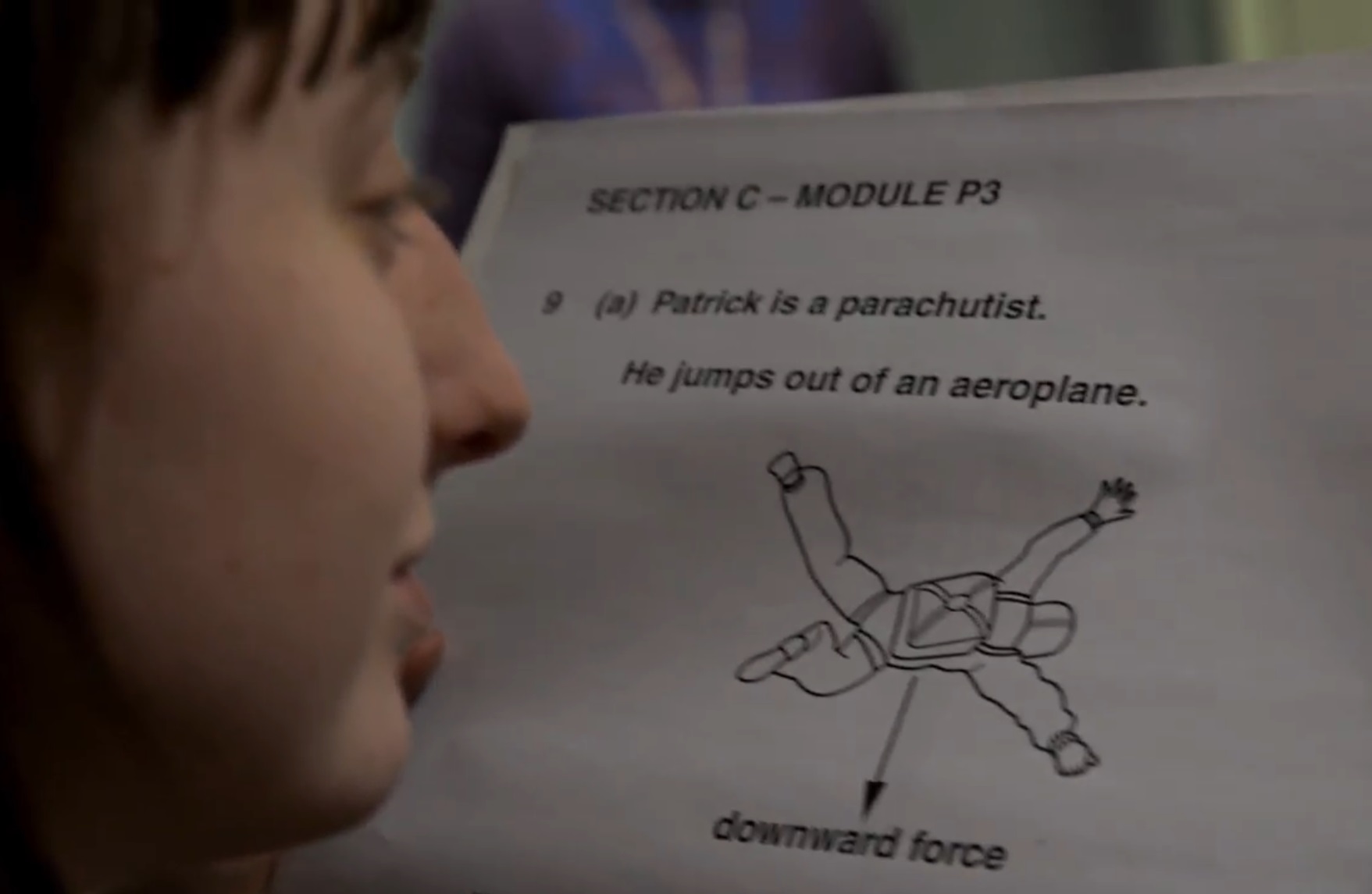
The usual font is Arial but this may not be true for all papers. - Braille paper — the standard format is contracted Grade 2 braille in Unified English Braille (UEB). Uncontracted braille and other specialised formats, such as tactile diagrams with print rather than braille labels, are available on request.
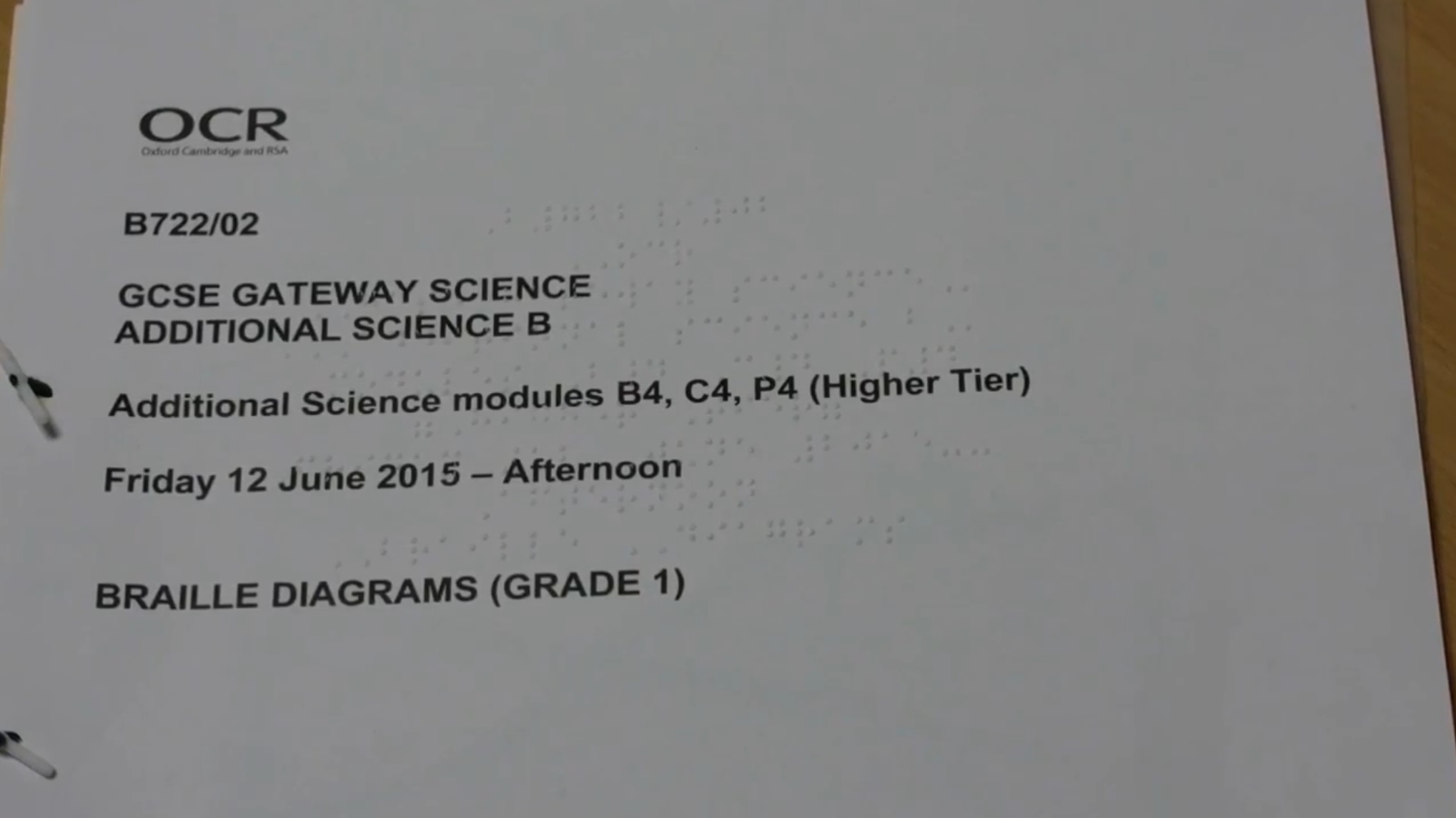
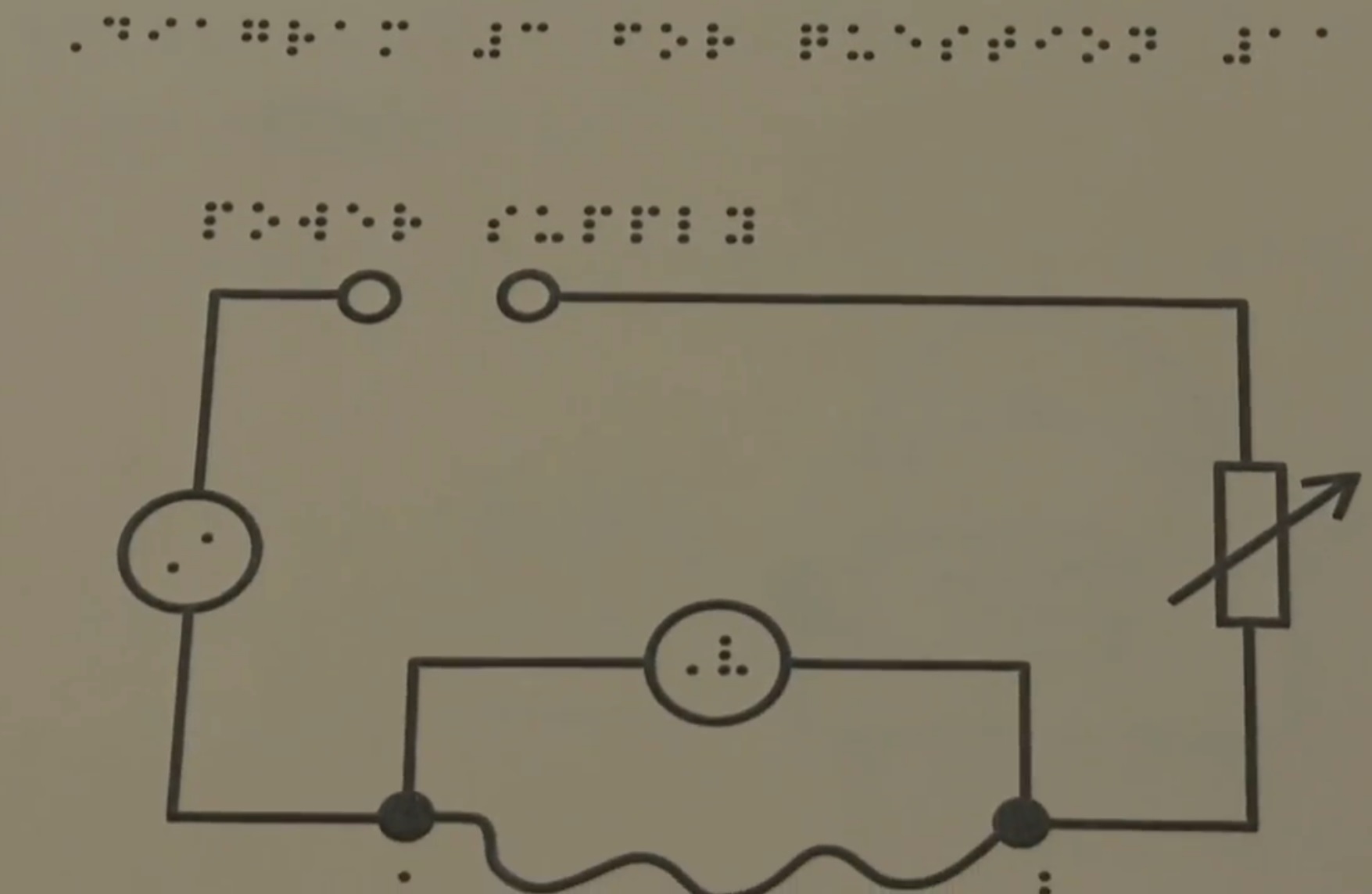
Constraints
Modified papers for less common subjects need to be applied for in good time according to the guidance and deadlines provide by JCQ and those of individual Awarding Organisations.
Some standard question papers may have already been language modified during their design by language specialists, in which case the paper is deemed accessible and there is no separate modified language version.
AQA ensures that all standard papers are checked for accessible language according to the guidelines published by BATOD (British Association of Teachers of the Deaf). AQA does not produce modified language papers.
The paper must not be further modified by the centre.
Evidence
The candidate must be deemed to have persistent and significant difficulties when accessing and processing information
Awarding bodies do not require evidence of the candidate's difficulties when a 'standard' modified paper or mdoified langauge paper is requested.
Considerations
For the adjustment to be effective, the candidate must have had appropriate opportunities to practice using an awarding body's past modified papers before his/her first examination.
Modified large print and braille papers should be produced in line with Best Practice Guidance produced by the UK Association of Accessible Formats (UKAAF). Centres should follow this guidance to make sure they are producing their own internal assessment materials in a similar format wherever possible.
Process
For GCE and GCSE an order for modified papers must be submitted using AAO.
For an overview of the process, refer to the
Modified papers for other qualifications are requested using Form 7.
There is a separate area within in the AAO for centres to order modified papers.
JCQ guidance
Coloured/enlarged papers
Refer to the
Enlarged papers
Refer to the
Braille papers
Refer to the
Modified language papers
Refer to the
Rationale
Electronic PDF files of standard print papers may be suitable for some candidates with a mild vision impairment who prefer to read papers on screen.
This format is also used for candidates wishing to use a computer reader.
Description
The candidate is given a non-interactive electronic question paper in PDF format. The centre is responsible for installation and presentation to the candidate.
The paper can be read on-screen.
Constraints
The PDF paper cannot be typed into.
Centres may also be able to request electronic versions of modified enlarged papers to be read on screen, but these cannot be ordered via AAO and should be requested directly from the Awarding Organisation concerned.
It is important to note that examination papers in electronic formats will not necessarily be fully accessible when zoomed or read with screen magnification software or a screen reader.
The paper may not be further modified. It may not be converted to another format eg MS Word.
Availability of these electronic versions means that there is no necessity for the centre to scan-in any papers.
Evidence
Confirmation that the candidate has a substantial and long term vision impairment and prefers to read on-screen, rather than on paper, as part of their normal way of working.
Considerations
It is the responsibility of the centre to ensure that the PDF provided by the Awarding Organsiation is fully compatible with their chosen software package.
UKAAF has developed minimum standards and guidance on producing exam papers in accessible PDF format. It is important to note that Awarding Organisations are at different stages in implementing this in practice. Centres should therefore contact the Awarding Organisation concerned to check details for individual papers and request samples for students to practise with.
Process
An order must be made using AAO. (For multiple candidates, one order per centre will suffice.)
JCQ guidance
Refer to the
Rationale
Under the Equality Act 2010 candidates with sensory impairment have a legal right to have their needs met on an individual basis. However, a balance has to be drawn by the Awarding Organisation between the candidate's needs and what is considered to be reasonable in terms of time, cost and the security and integrity of the examination.
If none of the 'standard' modified formats meets the particular needs of a candidate then the centre should make a more detailed case for the format they require.
Description
If approved, the awarding body will produce a customised paper for the candidate to use.
The need for individually modified papers can typically arise where a candidate has multiple difficulties that cannot be met by a single standard modified paper. For example, a candidate may need language modification in addition to enlargement.
Constraints
An adjustment will not be approved if it involves unreasonable costs, timeframes or affects the security or integrity of the assessment.
The paper must not be further modified by the centre.
Evidence
Make a detailed case for the specific format they require, based on evidence of the candidate's individual needs and normal way of working.
Considerations
Centres are advised to be aware of the standard range of modified papers and to encourage their students to work with these wherever possible.
Where a candidate requires question papers in an alternative format the centre must discuss his/her particular requirements at the earliest opportunity with the relevant awarding body's Modified Papers Unit, ideally at the start of the course.
Obtaining similar papers for the candidate to practice with may be an issue.
Process
An application must be submitted using AAO. It will be automatically rejected and the centre should refer the application the relevant awarding body.
Detailed discussion with the awarding bodies 'Modified Papers Unit'.
JCQ guidance
Refer to the
Rationale
Written examinations
A practical assistant may be needed for written examinations to, for example, guide the candidate to the correct passage of text on a page, or to hold a ruler in the correct place for a line to be drawn. Blind candidates may require a practical assistant to record the position of points or lines indicated on a tactile graph by means of pins and elastic bands.
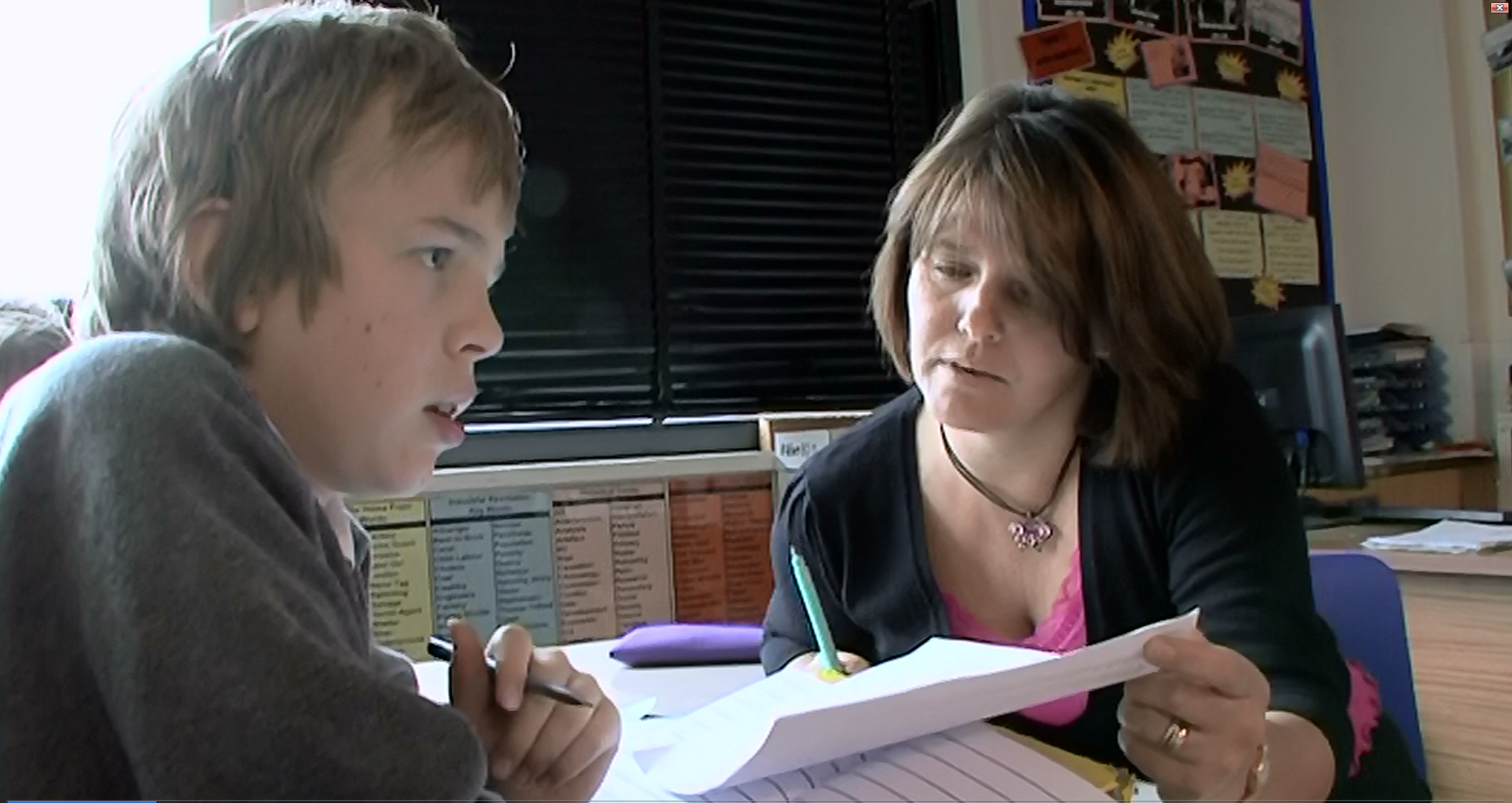
Practical examinations
There may be safety issues related to a candidate with a vision impairment being involved in the practical assessments for a science examination. In such situations a candidate would be credited with all the marks except those given for skills which have been performed by the practical assistant.
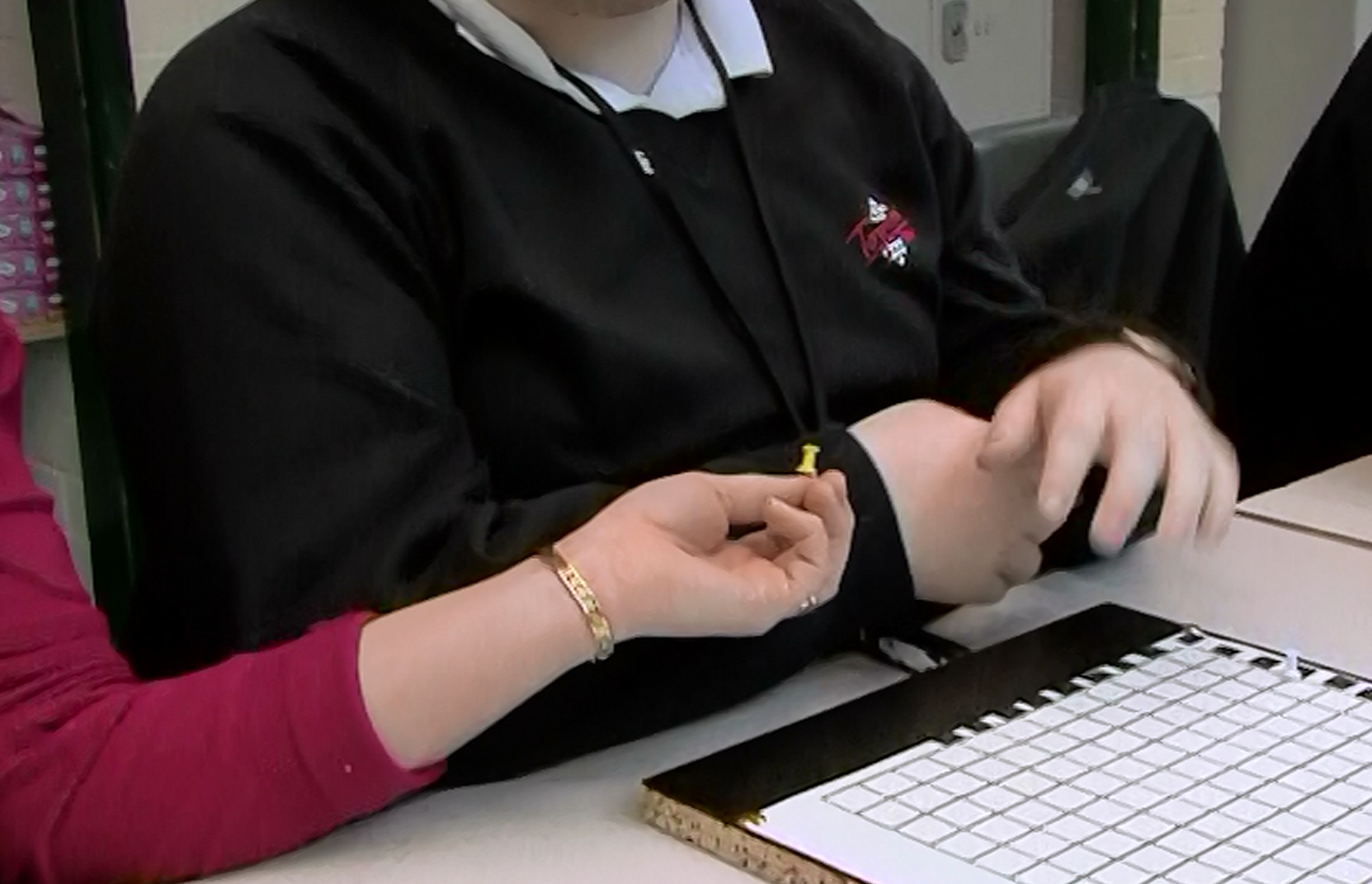
Colour naming
In some examinations, for example geography and science, the recognition of colours may be central to the focus of the assessment. Where a candidate is visually impaired and/or colour blind, a practical assistant should be allowed to name colours for them as long as this is compatible with the assessment objectives of the qualification.
Description
Where approved, the practical assistant will carry out practical tasks at the instruction of the candidate.
There are detailed rules in the JCQ guidance as to what the practical assistant can and cannot do.
Many candidates with a multi-sensory impairment will be supported in their daily education by a specialist trained Intervenor. An Intervenor is a specialist support assistant who provides the necessary additional visual and auditory information the young person requires to access their learning environment. Wherever possible, if a practical assistant is granted for exams this should be provided by the Intervenor or an adult who has worked with and supported the candidate in the past including within any assessment activities.
Constraints
Generally speaking a practical assistant is unlikely to be permitted in assessments testing practical skills. However, if the practical assistant will be carrying out only minor tasks, it may be appropriate to ask for this arrangement.
A practical assistant is not automatically a reader or scribe. Although the same person may end up carrying out those functions, each arrangement would need to be approved.
Evidence
Detailed information must be provided listing the tasks which the practical assistant would perform. This will allow the awarding body to ensure that the assessment objectives are not compromised.
Confirmation that the candidate uses a practical assistant in their normal work and that to be without one would substantially disadvantage the candidate.
Considerations
The use of a practical assistant always requires approval from an Awarding Organisation to avoid the risk that the candidate may be credited with marks for work done on their behalf.
The practical assistant cannot carry out any tasks where the skills are those being assessed.
Process
An application must be submitted using AAO. It will be automatically rejected and the centre should refer the application the relevant awarding body.
JCQ guidance
Refer to the
Rationale
Some access arrangements may necessitate the provision of separate accommodation, for example the use of a reader or scribe, where their work could be overheard by other candidates or the sound would distract other candidates.
Candidates with an impairment who require specific forms of lighting to maximise their access to examinations may also need to be accommodated separately.
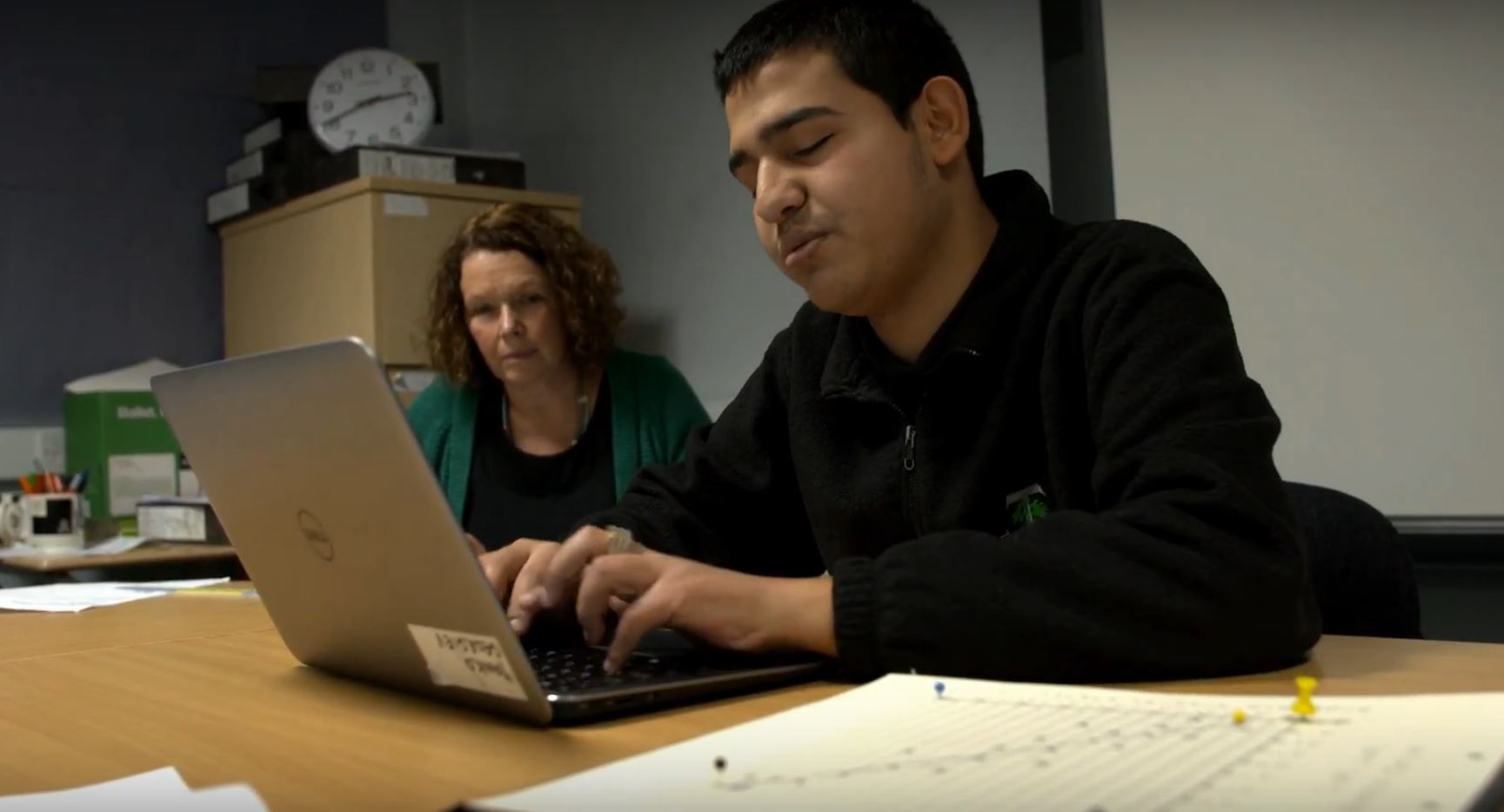
Description
The candidate sits their examination in a separate room.
Constraints
Separate accommodation will in turn require separate invigilation.
All other regulations and instructions for the conduct of the examination should be carried out.
Evidence
Justification is normally based on the use of another access arrangement.
Considerations
Where other arrangements have been approved, the invigilator may also be acting in another capacity eg a practical assistant. It is important to distinguish these roles and for the person concerned to understand what they may and may not do.
Process
This arrangement is delegated to the centre, there is no need to make an application for external approval. This does not constitute an 'other' arrangement.
JCQ guidance
Separate room
No specific guidance
Alternate site
Refer to the
Recent change to role name
Oral Language Modifiers have been renamed as Language Modifiers because colleagues delivering this arrangement are allowed to use elements of BSL, SSE and Cued Speech.
It will be important not to confuse them with Language Modifiers producing modified papers. BATOD proposes to refer to these colleagues as BATOD Language Modifiers.
Rationale
Some candidates need someone to clarify the carrier language in a written paper.
Description
A Language Modifier is a responsible adult who may clarify the carrier language used in the examination paper when requested to do so by a candidate.
Approval of an LM also allows up to 50% extra time.
Constraints
A Language Modifier may not be used in a paper testing reading.
The Language Modifier must not explain technical terms or subject-specific terms. The ability to understand these terms is part of the assessment.
The invigilation arrangements are very strict also:
- A separate Language Modifier and invigilator must be available for each candidate. The invigilator must listen carefully and observe the conduct of the Language Modifier throughout the duration of the examination. The invigilator must countersign the cover sheet ensuring that it accurately reflects the actions of the Language Modifier during the examination.
- Language Modifiers may open the paper one hour before the exam to prepare themselves but can only provide language modification when requested to do so by the candidate. It cannot be offered unsolicited.
- Modified papers must be ordered if an LM is to be used.
- A Language Modifier may also act as a Reader.
- An approved application for a Language Modifier will allow the centre to grant the candidate up to a maximum of 50% extra time in a paper (or a section of a paper) testing reading which cannot of course be modified by an LM.
- And as in other cases it must also represent the normal way of working.
Evidence
Must be able to demonstrate that the candidate has a disability that causes a very substantial and long term adverse effect resulting in very persistent and significant difficulties in accessing and processing information
To qualify for a Language Modifier who is able to clarify carrier language and the rubric of examinations, a candidate must have a standardised score of 69 or less (a very substantially below average standardised score) in relation to reading comprehension and/or vocabulary.
The candidate will have been assessed by a specialist who will have conducted an appropriate up to date test within 26 months of the final examination.
Accredited training courses for Language Modifiers are run throughout the year and the JCQ document says that Language Modifiers 'should' have undertaken this training. It does not say 'must' but it would be useful for any potential Language Modifier to attend this training to have an updated understanding of the theory and practice of the role. Teachers of the Deaf are permitted to undertake these assessments without undergoing the accredited training.
Considerations
A Language Modifier is an adjustment of last resort so an application must only be made once all other relevant access arrangements have been considered and found to be unsuitable or unworkable. In particular, prior to requesting a Language Modifier, consider the use of a modified language paper.
A separate application for a reader is not required.
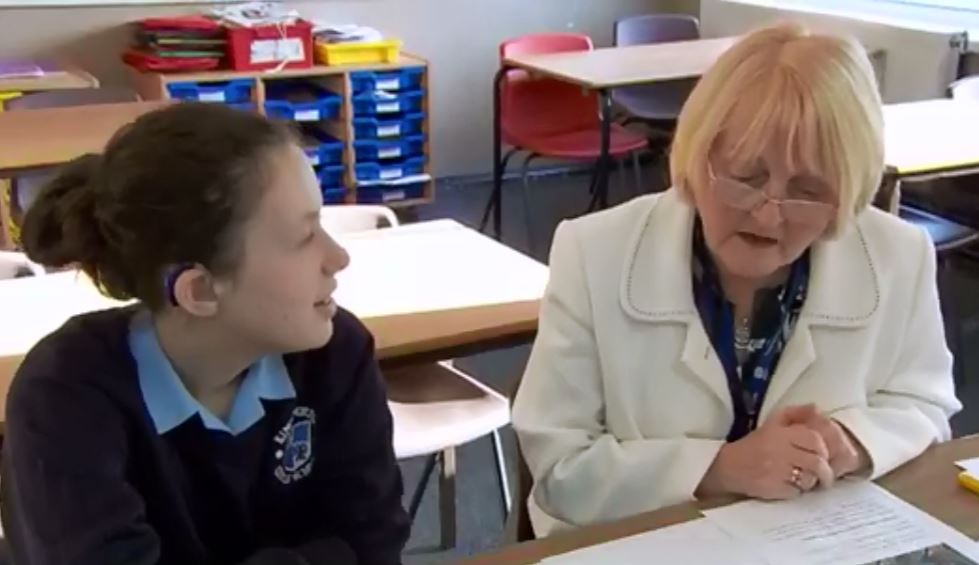
Process
An application must be submitted using AAO. It will be automatically rejected (there is no option for an LM in the AAO, select 'other') and the centre should refer the application to the relevant awarding body.
JCQ guidance
Refer to the
'Communication Professionals' were previously known as 'Sign Language Interpreters'.
Rationale
Centres are allowed to provide a Communication Professional to a candidate where it is their normal way of working within the centre.
Description
The role of a Communication Professional is to present the questions in a different language.
The interpreter should mark on the cover sheet all parts of the examination paper which were interpreted.
Constraints
The Communication Professional must not:
- change the meaning
- provide any additional information
- provide an explanation as to what the question requires of the candidate.
Evidence
This can be requested for a candidate who uses BSL in his or her education. No evidence has to be provided for this to be granted.
Considerations
Care
Sign language interpretation cannot be checked by the awarding body for accuracy. Great care must be taken not to disadvantage or advantage the candidate.
Video
JCQ guidance states that centres should video the signing of the Communication Professional to demonstrate accuracy.
It is noted that the term ‘should’ is used rather than ‘must’. JCQ strongly desires that videoing takes place but accepts that this may currently cause practical difficulties so it is not yet compulsory. They intend to change it to 'must' in due course.
Proficiency
A statement regarding the proficiency of the Communciation Professional is provided in the
Following serious concerns expressed by colleagues that some of their Communication Professionals did not have level 3 in BSL even though they are operating at that level or higher it was agreed that centres could approach JCQ to explain that fact.
As a result of the concern expressed, the wording in the 2019-2020 regulations, which still remain in force, is as follows:
The Communication Professional must be proficient in the use of the candidate’s sign language, ideally being qualified to a minimum of BSL/ISL at Level 3 (and aspiring towards Level 6). The Communication Professional must be at an appropriate level for the examination. It is advisable that the Communication Professional should also be a qualified Language Modifier. The Communication Professional must be familiar to the candidate and must always work at the candidate’s pace.
Section 5.13.4 Adjustments for candidates with disabilities and learning difficulties, JCQ
Candidate response
Usually, it is not possible for the candidate to reply to the questions in BSL, although individual words can be used and written down. However, if a case can be made that a specific individual's needs require this and the practical implications can be addressed by recording and transcribing the candidate's responses, it can be allowed in discussion with the Awarding Organisation.
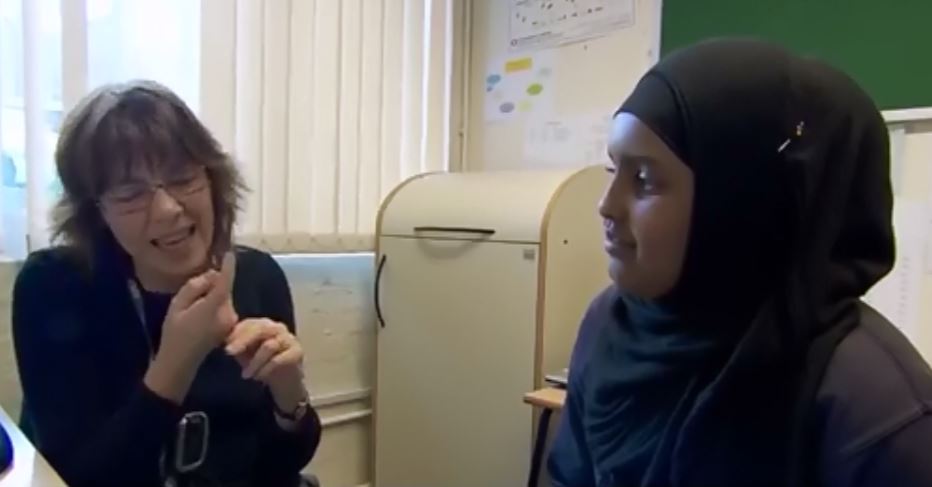
Process
This arrangement is delegated to the centre; there is no need to make an application for external approval.
JCQ guidance
Refer to the
Rationale
Some examinations include pre-recorded components, for example MFL listening examinations. Candidates with a multi-sensory impairment may have difficulty hearing a recorded conversation.
Description
A recorded conversation may be replaced by a live voice.
If several voices are used in the stimulus material more than one person can be employed.
Initial letters of words may be written or finger spelt.
Constraints
The transcript must be ordered in advance.
The live speaker should be given access to the recorded material and/or transcripts an hour before the examination.
Evidence
Confirmation that the candidate has persistent and significant difficulties in following speech at normal speed.
Considerations
The centre must consult a specialist teacher, i.e. a qualified Teacher of the Deaf, to identify the most appropriate arrangement for a candidate with hearing loss.
The live speaker should, wherever possible, be the candidate's subject or specialist teacher.
Repetition may be necessary so the use of extra time should be considered. Extra time would need to be requested and approved.

Process
This arrangement is delegated to the centre; there is no need to make an application for external approval.
JCQ guidance
Live speakers
Refer to the
Transcripts
Refer to the
Rationale
Candidates who are unable to read quickly enough in an exam context as a result of linguistic delay caused by their hearing impairment/multi-sensory impairment may need the support of a reader.
Description
The reader may be in the form of a human reader or a computer reader. The arrangement should reflect the candidate's normal way of working.
The reader is permitted to read the text or questions.
Constraints
The reader must not explain or clarify the questions or text, or advise on timing or the choice or order of questions.
Readers are not usually allowed in sections of papers which are testing reading, as candidates cannot be granted marks for a skill that they are unable to demonstrate.
A reader is not approved if the difficulty is related to the candidate's first language not being that used in the examination.
Readers are normally not allowed to decode any symbols (e.g. mathematical, musical, scientific) and unit abbreviations. However, the JCQ guidance states that:
Where a candidate has a significant visual impairment and cannot access a Braille or modified enlarged paper, and cannot independently decode symbols and unit abbreviations, an on-line application for 'Other' should be processed. The centre must set out a compelling rationale as to why the candidate needs symbols and unit abbreviations decoded for him/her by a reader.
Access Arrangements and reasonable adjustments
From September 2020 the following new arrangement relating to readers has also been introduced:
Readers may decode symbols and unit abbreviations in Maths and Science examinations for candidates who require this arrangement in order to access the assessment and where it reflects the candidate’s current and normal way of working within the centre.
Access Arrangements and reasonable adjustments
Evidence
For a candidate with a multi-sensory impairment it should not be necessary to provide evidence of their reading speed and comprehension when applying for this arrangement. Evidence of the impairment should be documented.
The arrangement, whether for a reader or a computer reader, must reflect the candidate's normal way of working in internal school tests and mock examinations.
Considerations
Where an application for a computer reader is approved, it is strongly recommended that the centre orders a non-interactive electronic question paper.
A Language Modifier may be more suitable to assist in clarifying complex language.
A candidate who uses a reader must be accommodated separately within the centre.
Process
An application must be submitted using AAO. It may be automatically approved.
JCQ guidance
Refer to the
Rationale
It can make a significant difference to a candidate who persistently struggles to understand what they have read, but who does not qualify for a reader, to read aloud. Where candidates are reading difficult text they may work more effectively if they can hear themselves read.
Description
This may be in the form of the candidate being permitted to read aloud or use an examination reading pen. The arrangement should reflect the candidate's normal way of working.
The reader is permitted to read the text or questions.
Constraints
Examination reading pens must not have an in-built dictionary or thesaurus.
Evidence
For a candidate with a hearing impairment it should not be necessary to provide evidence of their reading speed and comprehension when applying for this arrangement. Evidence of the impact of the hearing impairment should be documented in case of inspection.
The arrangement, whether for an examination pen or the candidate reading aloud, must reflect the candidate's normal way of working in internal school tests and mock examinations.
Considerations
A candidate who reads aloud to himself/herself must be accommodated separately within the centre.
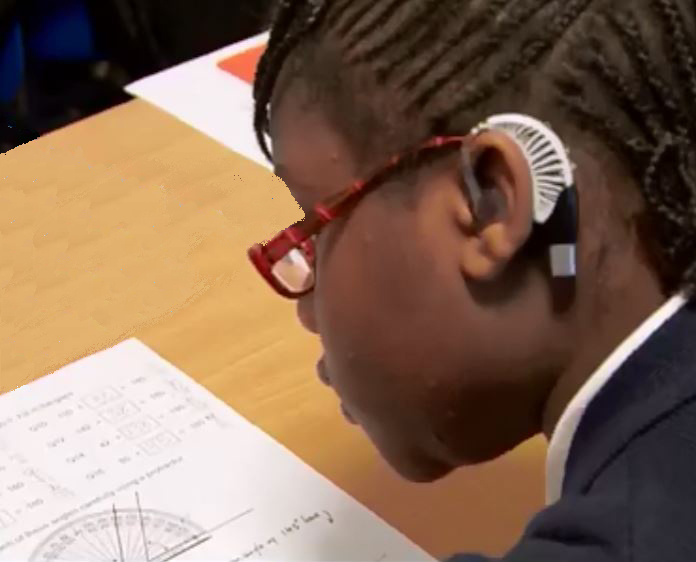
Process
This arrangement is delegated to the centre; there is no need to make an application for external approval.
JCQ guidance
Refer to the
Rationale
A candidate with an impairment who is unable to write or type independently or at sufficient speed may benefit from dictating his or her answers to a scribe.
Description
The candidate dictates his or her answers to a scribe, who will write (or word process) word-for-word as the candidate dictates.
A scribe must strictly follow the candidate's instructions to draw or add to maps, diagrams and graphs.
Constraints
A scribe should only be used where the candidate is not competent in using a word processor themselves.
There may be limitations to the use of a scribe in Modern Foreign Language papers and also in English, where full marks for spelling and punctuation may not be available unless the candidate dictates all his or her responses in full.
Evidence
The SENCo must demonstrate that the candidate has an impairment which has a substantial and long term adverse effect on his/her writing and that using a scribe is the candidate's normal way of working.
Show the involvement of teaching staff in determining the need for a scribe.
Confirm that without the application of a scribe the candidate would be at a substantial disadvantage.
Considerations
Where a candidate dictates answers to a recording, the answers must subsequently be scribed
A scribe is not a reader, prompter or practical assistant. Those arrangements should be requested additionally if needed.
Process
An application must be submitted using AAO. It may be automatically approved.
JCQ guidance
Application
Refer to the
Evidence of need
Refer to the
Rationale
A candidate with a multi-sensory impairment may have persistent and significant difficulty with memory and spoken language.
Description
Specific access arrangements for the spoken language endorsement element of GCSE English Language can be found in a document written by the Inter-board Working Group for GCSE English Language, and published on the BATOD website. This link requires membership access.
Rationale
Any answers written in braille need to be transcribed by the centre.
Description
The candidate's answers are transcribed into print before being sent off for marking.
Constraints
Braille
All braille scripts must be transcribed by the centre before sending for marking.
Illegible handwriting
Although a candidate's handwriting may be illegible due to an impairment, it is not permissible for the centre to transcribe the script. Centres should seek to make use of a Word processor arrangement. If this is not appropriate then the centre should consider the use of a scribe access arrangement.
Evidence
No evidence is needed to support the transcription of braille into print.
Considerations
The centre must have someone with the relevant expertise on hand to carry out transcription in the limited time allowed.
Candidates are responsible for producing legible writing.
Process
This arrangement is delegated to the centre, there is no need to make an application for external approval.
JCQ guidance
Refer to the